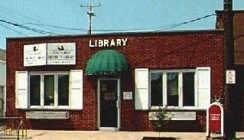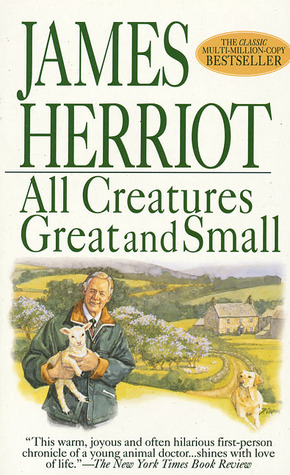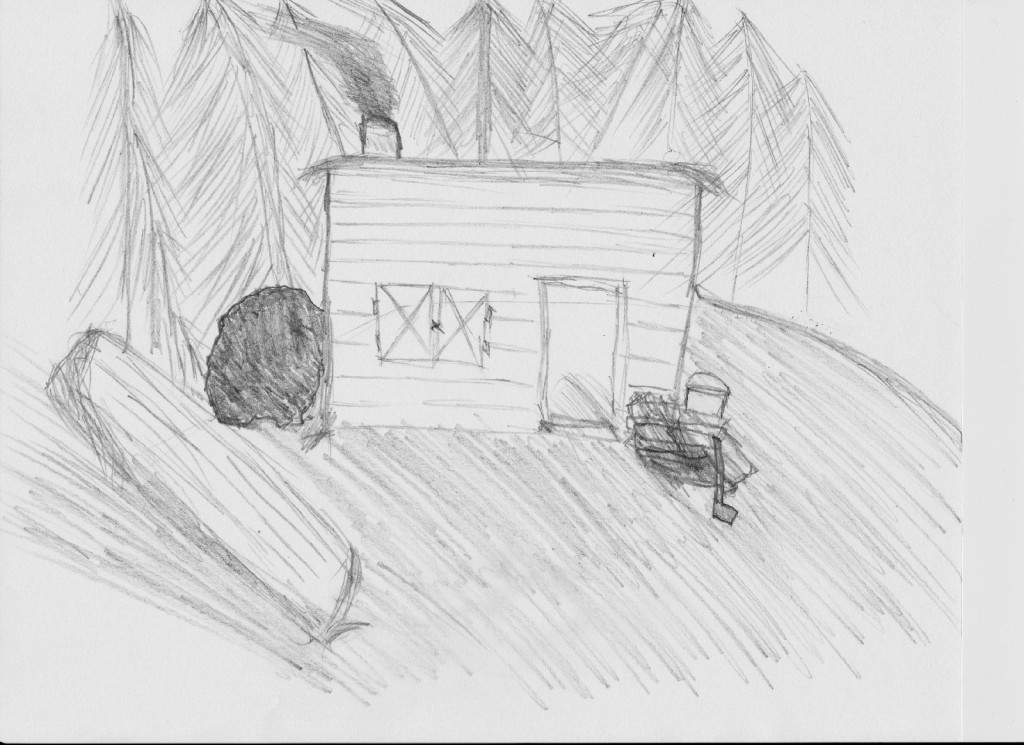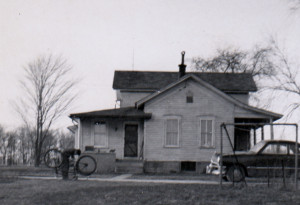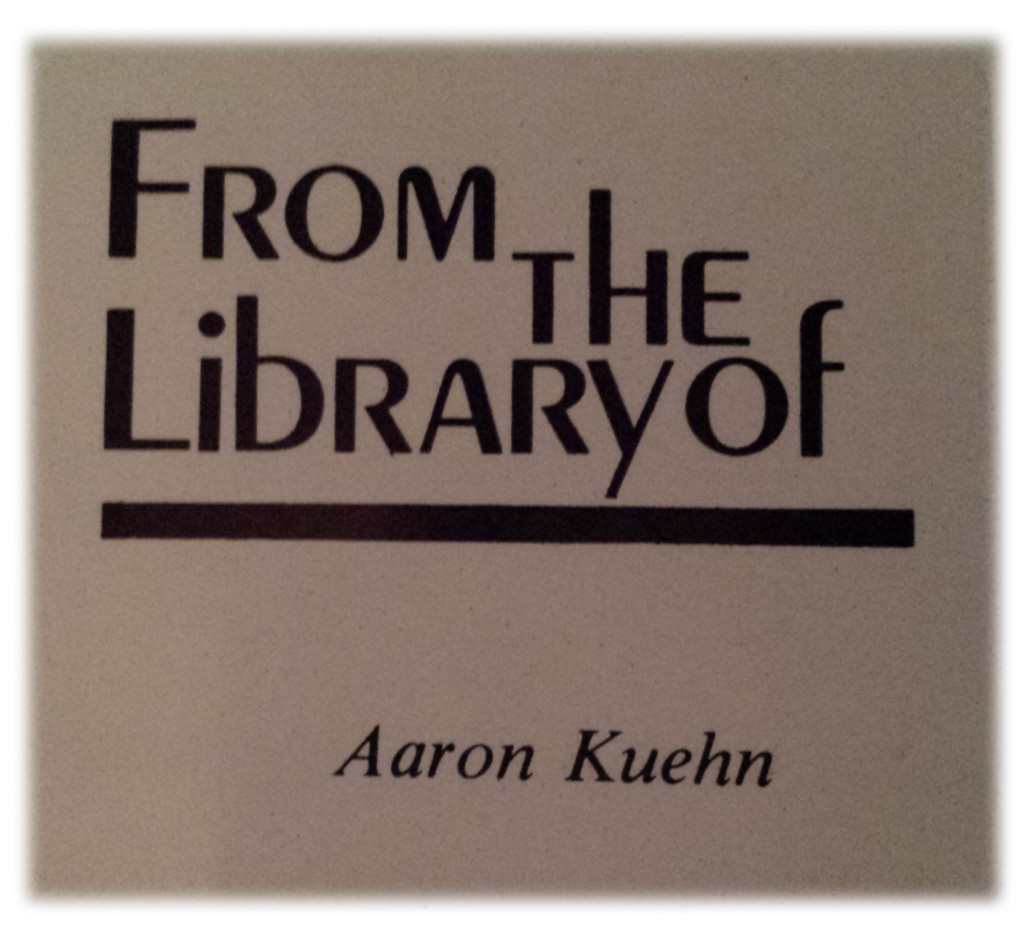 The picture here is of a sticky-back label in one of my books. Several decades ago I bought boxes of those custom-made stickers from the Lillian Vernon catalog. I had gotten old enough to earn a little money by mowing lawns and was able to make the occasional book purchase and those stickers provided proof that I was building my own library.
The picture here is of a sticky-back label in one of my books. Several decades ago I bought boxes of those custom-made stickers from the Lillian Vernon catalog. I had gotten old enough to earn a little money by mowing lawns and was able to make the occasional book purchase and those stickers provided proof that I was building my own library.
I don’t know where my love of books and reading originated. Neither of my parents were readers. But as far back as I can remember, I’ve had an interest in books. I’ve liked the way they look, smell and feel. I’ve wanted to read them and write them. They’ve always been a part of my life.
After my last move, to Utah, I came across the last box of From the Library of stickers. They were brown and curled up and no longer sticky. In fact, they’ve fallen out of most my remaining books. I took pause over keeping them as a memento. My final decision was to send them to the trash. But I still have some books that are marked with my name, reminders of a time when I wondered what my grownup life would be like.
I grew up in rural Michigan, between two towns: very tiny Gobles and not much larger, Paw Paw. Gobles had a library that wasn’t much more than a closet. Most of the collection was of children’s books. Paw Paw had a more serious library. My small country school had an okay library, but its content was for school work, not for pleasure reading. At least that was my take at the time.
My mom and I decided that if we were to use a library it would be the one in Paw Paw, though using it would be a minor inconvenience. The Paw Paw library was in a beautiful century-old structure of stone and wood. Each trip to the library combined my love of books and wood into more than just a search for words.
My first few visits to the library were frustrating. My mom took me and wasn’t all that interested in the mission so she went shopping at the Ben Franklin discount store next door. But mom not being much of a shopper, I knew I didn’t have a lot of time to find a book.
I felt the time crunch to find something, but also enjoyed the process. I listened in on the dialog taking place at the librarian’s desk, central to the building. People would come in and ask for help answering all kinds of questions. I was fascinated and energized.
One of the first books that I checked out of the library was All Creatures Great and Small which was extremely popular at the time. Everyone seemed to be reading it. I absolutely devoured that book while swallowed by my blue beanbag chair.
As I got older I imagined a grownup life where I had a house with a library. I envisioned a traditional library with paneled walls, cozy leather chairs and a fire. So far I haven’t gotten that library and maybe I never will. Today I’d still like to have that room, but it’s more important to have interesting and compelling words to read.
Today we have many easy options for reading material. Sadly we’ve lost Borders and Waldenbooks not to mention many local shops. But when I was a kid, the first proper bookstore I experienced was a Waldenbooks at the new Maple Hill Mall in Kalamazoo.
My Waldenbooks wasn’t very big but it was an oasis to me. The mall was practically a destination for us, we likely went once a week. More convenient than the library, I looked forward to getting my browsing fix on a regular basis at Waldenbooks.
It was at the Waldenbooks store where I started to buy books. It felt good to build a collection and have the books to look at. They were badges of accomplishment: I had purchased and read them and I was proud.
At the same time even a paperback was a big percentage of my earnings, so each purchase had to pay off with a good story. If I got a book that wasn’t enjoyable I would be so sad. This rarely happened, but it was my constant fear while shopping.
When my college years came I gained a different appreciation for my love of reading. I worked full time and went to school part time so I was busy. For the eight years it took to earn my degree, all of my reading effort was academic. Occasionally I’d try to read something for me but my mind would constantly interrupt to tell me I should be reading my Soviet political systems text. I lusted for the day when college would be behind me and I could read whatever, whenever.
After several moves I’ve thinned out my library of physical books. Considerably. I simply didn’t have the space and lost the energy to pack them. And since I am not a re-reader there is no logical reason to hold onto them.
It’s been more than a year now since I’ve read a non-digital book. It was a hard transition to digital, but one that I felt I needed to make. I still love the physical book and enjoy a long browse at Barnes & Noble. But the reality of what comprises a library has changed.
The Goodreads website has played a role in making the transition work. My childhood vision of having an impressive physical library may never be reality, but I can see the books that I’ve read by looking at my Goodreads shelves. And I can also research future reads and learn about reading options from my Goodreads associates (http://www.goodreads.com/review/list/1559344-aaron-kuehn?shelf=read).
Today the my interest in reading is not having a shelf to point to or a history of titles to remember, it’s excitement around what the next read may be. Will the next book be another one that sucks me in so deeply I don’t want to go to sleep? Will a new thought or idea or perspective be seeded because of a phrase or concept never-before considered? Will I be transported to a place that is rare and special and can only be experienced in my imagination?
The potential, the escape, the adventure, healing and recoup that comes from reading, those are the important things now.
From the library of Aaron Kuehn is a thing of the future, not of the past.
